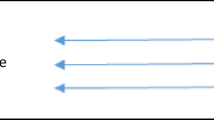Abstract.
Definition of the problem: The Dutch policy regarding euthanasia has been causing amazement in other countries over and over again: Although euthanasia is illegal in the Netherlands, there are cases of euthanasia in which no criminal prosecution follows. The latter are regulated actively and in public by the Dutch authorities. In other countries certain cases of euthanasia are sometimes tolerated as well, however, there it is in most cases merely tacitly consented to. In contrast to these countries, in the Netherlands it is declared in advance under which conditions physicians do not need to fear criminal prosecution of their illegal actions. How can this peculiar Dutch policy be explained?
Arguments: The Dutch policy concerning euthanasia is a typical example of a policy of pragmatical tolerance. This societal phenomenon is typically Dutch and can best be explained from a historical perspective.
Conclusion: The historical roots of this policy of pragmatical tolerance can be found in the Dutch republic of the 17th century, where two dominant and sometimes rather opposite societal forces influenced the Dutch mentality and policy. The merchants wanted peace and freedom through a policy of tolerance, exemptions and compromises. The calvinists, on the other hand, strove for normative regulation of all human behaviour corresponding to their rigid moral standards. These two forces constituted the Dutch policy of pragmatical tolerance: on the one hand certain criminal acts remained unpunished, on the other hand certain conditions for immunity from criminal prosecution were formulated in advance and in public by the authorities. As such the practice of tolerance of illegal deeds was normatively regulated. This typically Dutch form of tolerance still exerts an important influence on the present policy of euthanasia in the Netherlands.
Zusammenfassung.
Die niederländische Euthanasie-Politik erzeugt immer wieder Verwunderung in anderen Ländern: Grundsätzlich stellt Euthanasie sowohl in den Niederlanden als auch im Ausland einen strafbaren Tatbestand dar. Und hier wie dort werden unter bestimmten Umständen derartige Fälle geduldet. Im Ausland geschieht diese Duldung, falls überhaupt geduldet wird, im allgemeinen stillschweigend und inoffiziell. Die niederländischen Behörden dagegen regeln aktiv und öffentlich diejenigen Fälle von Euthanasie, in denen keine Strafverfolgung eingeleitet wird. Man gibt im voraus an, unter welchen Umständen der betreffende Arzt keine Strafverfolgung zu befürchten hat. Mit der vorliegenden Abhandlung wird mittels eines kurzen Rückblicks in die Geschichte der früheren Republik der Niederlande eine historische Erklärung des typisch niederländischen Phänomens des gedogen gegeben. Im Anschluß wird aufgezeigt, inwieweit gedogen im Bereich der niederländischen Euthanasie-Politik zum Tragen kommt.
Similar content being viewed by others
Author information
Authors and Affiliations
Rights and permissions
About this article
Cite this article
Gordijn, B. Euthanasie: strafbar und doch zugestanden? Die niederländische Duldungspolitik in Sachen Euthanasie. Ethik Med 10, 12–25 (1998). https://doi.org/10.1007/s004810050003
Published:
Issue Date:
DOI: https://doi.org/10.1007/s004810050003




